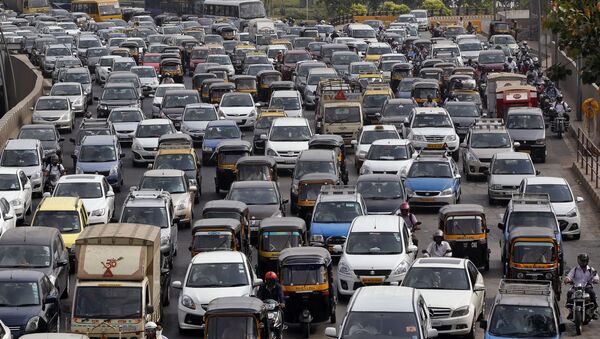A serological survey conducted by the civic authority in Mumbai has revealed that 57 percent of slum dwellers in the city have already developed anti-bodies against the infection.
The prevalence was found to be 16 percent in three residential areas in the city. Individuals who were tested were all asymptomatic and had recovered from the infection.
A serological survey is a method to identify the prevalence of an infection and anti-bodies among the general population.
India's Mumbai dealt with the challenge to contain the spread of infection in the slums, especially in Asia's largest slum Dharavi, which was once a COVID-19 hot spot. WHO Director-General Tedros Adhanom lauded the Dharavi model in breaking the transmission chain and preventing the disease from wreaking havoc.
The slum which has 850,000 residents spread over 2.4 sq km, has seen a significant drop in its daily tally, with only a single digit rise for the past few days. The slum reported 3 new COVID-19 cases in the last 24 hours and has 88 active cases. The total tally of cases in the slum stands at 2,543.
Meanwhile, Mumbai's survey comes after Delhi revealed that over 23.48 percent of the capital's general population had recovered from COVID-19 without even realising. This is 4.2 million of Delhi's 20 million people.
India has registered 1,533,936 coronavirus cases so far, with 34,193 deaths. However, the country has a recovery rate above 63 percent. Some 988,029 people have recovered from the virus. The number of active cases in the country remains at 509,447.


